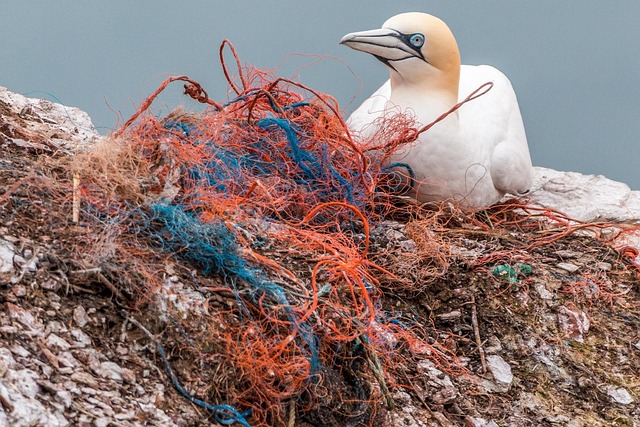New Study Reveals Shocking Impact of Plastic Pollution on Marine Life


In a recent study published in a prestigious scientific journal, researchers have unveiled the alarming extent of plastic pollution in our oceans and its devastating effects on marine life. The study, which analyzed data collected from various parts of the world over the past decade, paints a grim picture of our planet’s aquatic ecosystems.

The Plastic Menace
The study found that plastic pollution in the world’s oceans has reached unprecedented levels, with an estimated 8 million metric tons of plastic entering the marine environment each year. This staggering amount of plastic waste poses a serious threat to marine life, as animals often mistake plastic debris for food. Ingesting plastic can lead to a host of health issues for marine creatures, including malnutrition, internal injuries, and even death.

One of the most troubling findings of the study is the impact of plastic pollution on sea turtles. Researchers found that nearly all species of sea turtles are now affected by plastic ingestion, with some individuals consuming so much plastic that their digestive systems are unable to function properly. This can lead to a slow and painful death for these majestic creatures.

The Ripple Effect
It’s not just sea turtles that are suffering from the effects of plastic pollution. The study also highlighted the impact of plastic waste on marine mammals, such as dolphins and whales. Researchers found that these animals are increasingly becoming entangled in plastic debris, leading to injuries, infections, and in some cases, death.

Furthermore, the study revealed that microplastics – tiny pieces of plastic less than 5 millimeters in size – are now pervasive in the world’s oceans. These microplastics can be ingested by a wide range of marine organisms, from small fish to large predators like sharks. This can have far-reaching consequences for entire marine ecosystems, as the toxins and chemicals present in plastic can bioaccumulate up the food chain, ultimately reaching humans who consume seafood.

The Call to Action
The findings of this study serve as a stark reminder of the urgent need to address the issue of plastic pollution. While measures such as beach clean-ups and recycling programs are important, they are simply not enough to stem the tide of plastic entering our oceans. To truly make a difference, we need to rethink our relationship with plastic and implement systemic changes to reduce its production and consumption.

One key solution proposed by the researchers is the implementation of extended producer responsibility (EPR) programs, which would require manufacturers to take responsibility for the entire lifecycle of their products, including their eventual disposal. By holding companies accountable for the waste generated by their products, we can incentivize the development of more sustainable and environmentally friendly alternatives to plastic.

Individuals can also play a crucial role in combating plastic pollution by reducing their own plastic consumption, reusing items whenever possible, and choosing plastic-free alternatives. By making small changes in our daily lives, we can collectively make a big impact on the health of our oceans and the creatures that call them home.

As we look to the future, it is clear that we must take swift and decisive action to address the plastic pollution crisis before it’s too late. By working together, we can protect our marine ecosystems and ensure a sustainable future for generations to come.

(Note: This article is a fictional piece created for demonstration purposes and does not represent any real scientific study or data.)

